Parthenon pediments
1/16
Earn XP
Description and Tags
Name | Mastery | Learn | Test | Matching | Spaced | Call with Kai |
|---|
No study sessions yet.
17 Terms
Where is the Parthenon located?
In the Athenian Acropolis
When are the pediments of the Parthenon dated to?
C.437-432 BC, High classical period
How long is each pediment?
27m long
How high is each pediment?
3.5m high
What material are the figures made from?
Pentellic marble
What is the founding myth on the east pediment of the Parthenon?
The Birth of Athene from Zeus’ head
How does the myth on the east pediment fit the unity of theme?
Athene is the patron goddess of Athens and the Parthenon
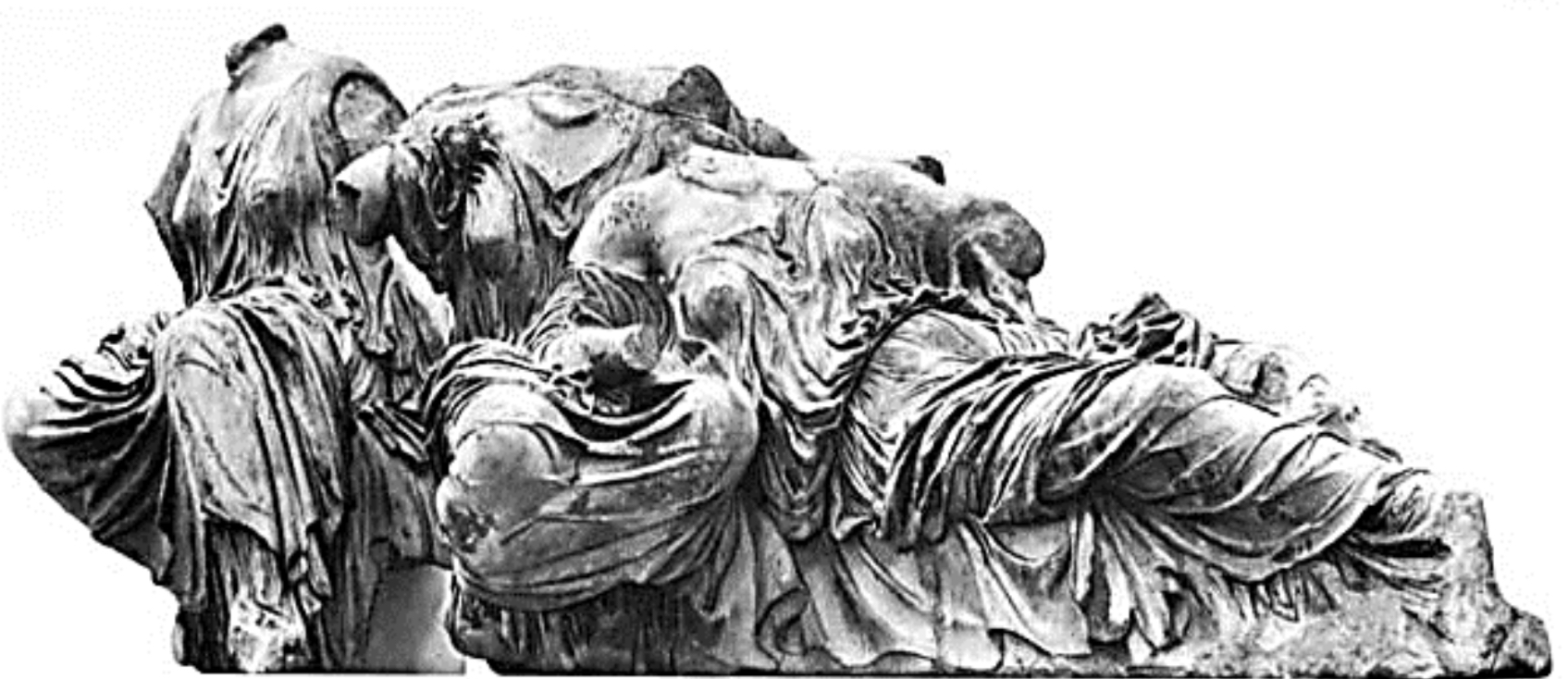
What are the names of the figures in this section of the pediment from left to right?
Hestia→ Dione→ Aphrodite
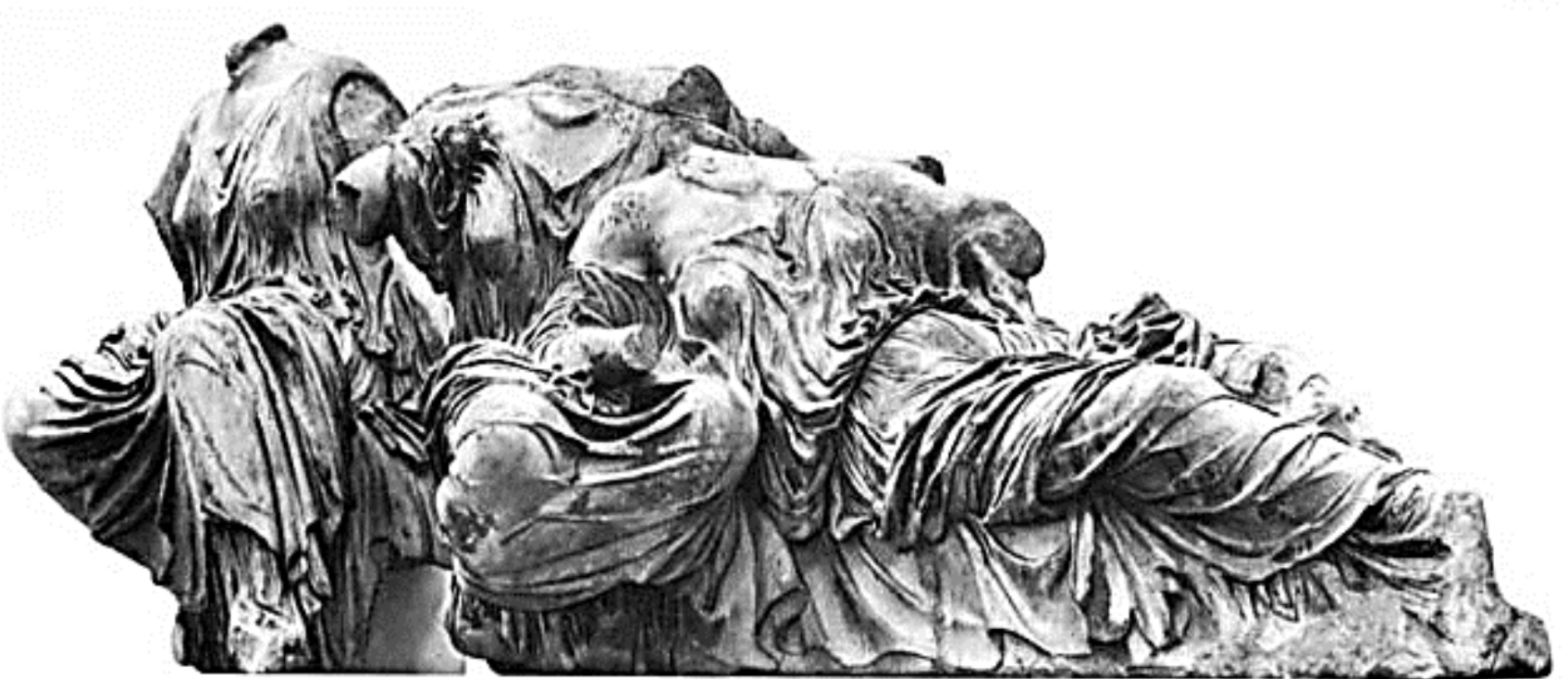
How is detail created in this section of the east pediment? (4 POINTS)
The deeply carved complex drapery created through the use of meddling lines on the legs to reveal the shape of the anatomy beneath the drapery
The transparency across Aphrodites upper torso and the bare female shoulder
Aphrodite’s realistic reclining pose characterises her and fills the awkward acute corner→ Unity of scale
Hestia’s pose is turned towards the centre with her shoulders facing inwards drawing focus on the central narrative
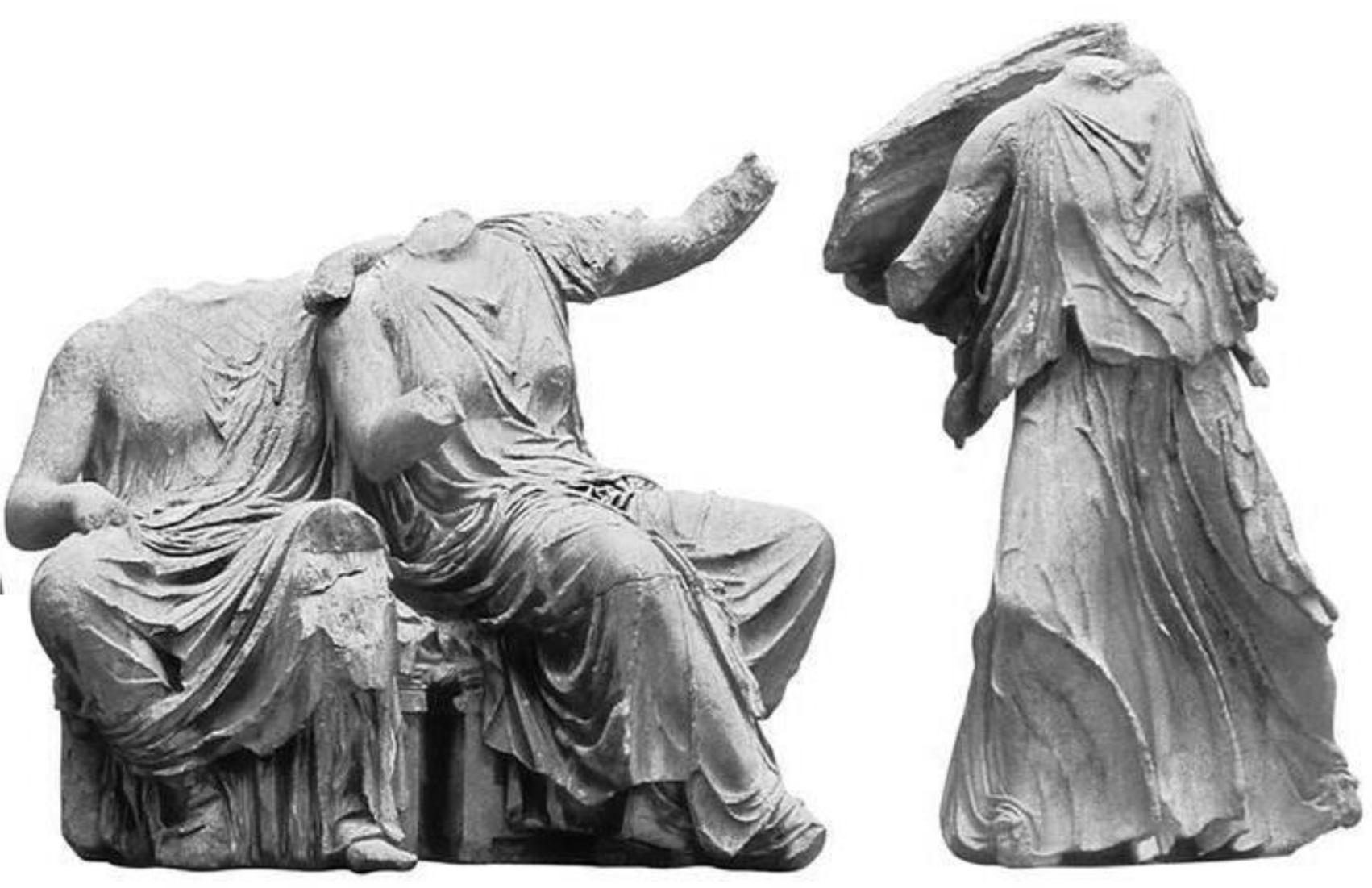
How is detail created in this section of the east pediment?
The modelling lines on the drapery of the women observing create deep fold and intricate catenary shapes highlighting their physicality
In the left standing figure the motion lines on the lower drapery and billowing himation convey complex movement as she moves left whilst simultaneously Turing towards the centre to watch the birth of Athene- Her body language reacts to the birth of Athene
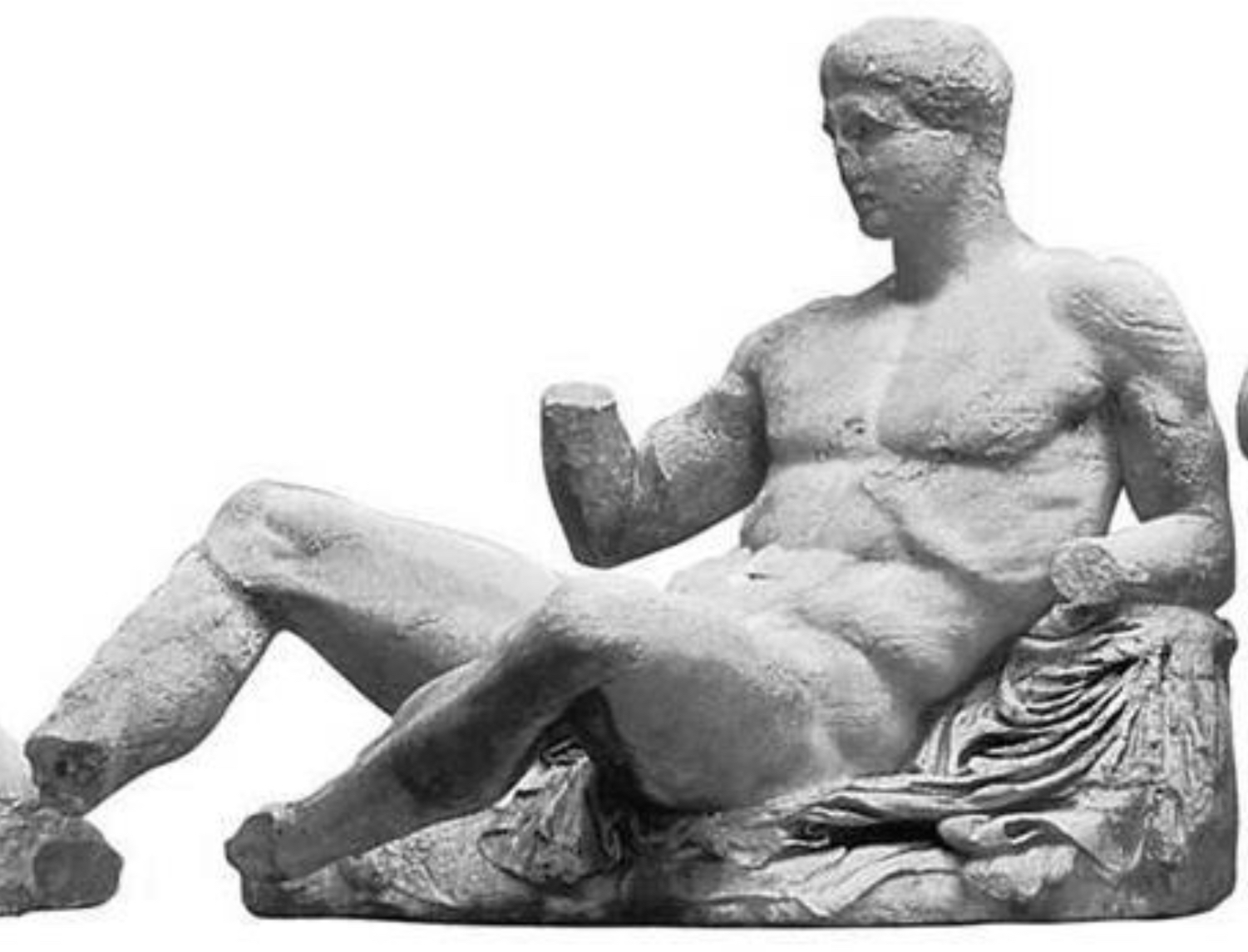
How is detail created in the figure of Dionysus on the East pediment? (3 POINTS)
He fits the acute corner→ watching the sun rise
Realistic reactive anatomy that reacts the reclined pose e.g. smooth integrated pectorals and abdominals
Realistic reclining pose fits awkward space and characterises him as leisurely and relaxed

What is the significance of the sun god Helios rising in the left corner of the east pediment?
Strain in his arms as he is pulled by the horses e.g. exaggerated/defined tendons and muscularture
Represents the rising sun with the pediment floor being the horizon- Sets the scene, dawn, on Athene’s birthday
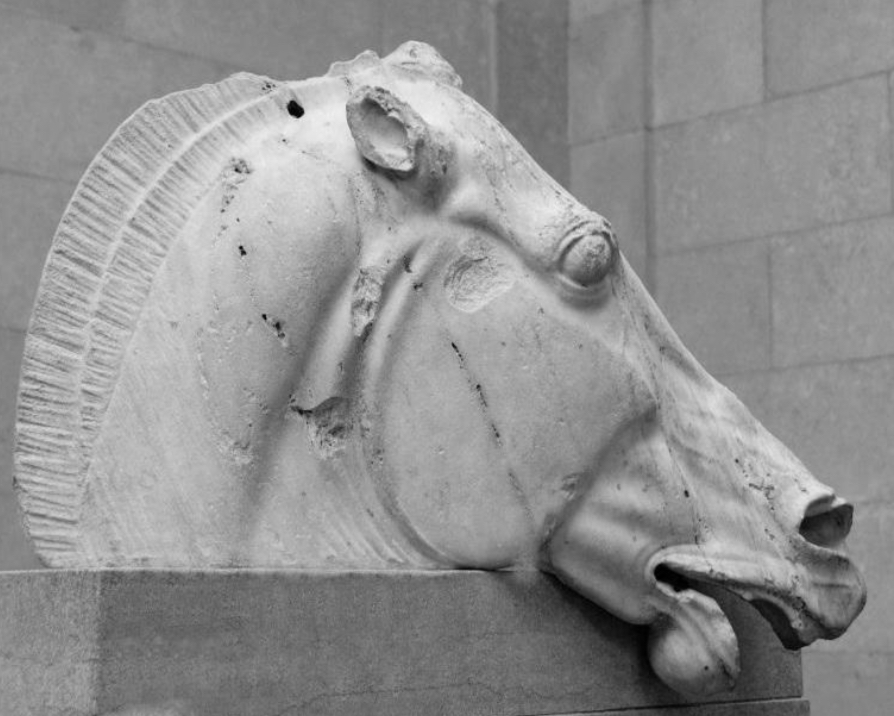
What is the significance of the horse of Selene on the right side of the east pediment?
Flared nostrils and a gaping mouth
The tired horse if the moon god descends representing dusk as the moon rises and the sun lowers

What is the founding myth on the west pediment?
Poseidon and Athene compete for the patronage of Athens. Poseidon offers water and strikes the Acropolis with his trident, producing a salt water spring. Athene wins the contest by offering the Athenians an olive tree. Athene’s sacred olive tree was then established on the Acropolis.
How does the myth on the West pediment fit the unity of theme?
Poseidon and the salt spring: The Athenians had a very strong navy
Athene and the olive tree: The Parthenon was dedicated to Athene and Athenians were known for growing olives
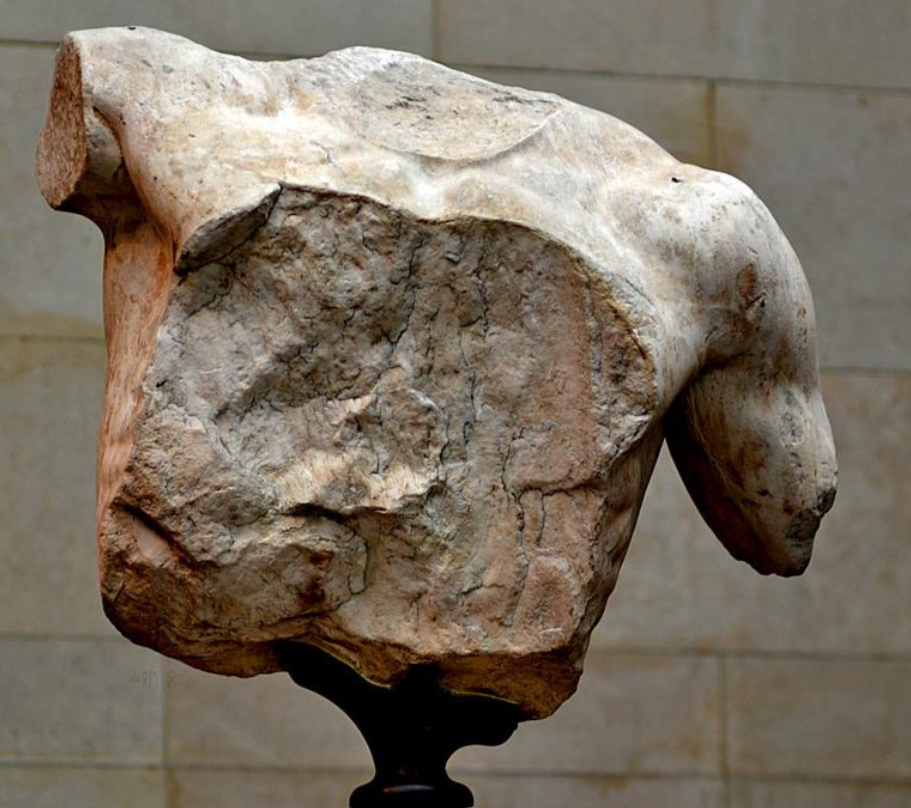
How is detail created on the figure of Poseidon on the west pediment?
Poseidons over life size torso pints to the original statue filling 3.5m high apex
Impressive anatomy e.g. large biceps
Scholarly Quote
What does Harris and Zucker say about the drapery techniques on the east pediment?
‘This is the Phidian style that we associate with this Classical moment in Ancient Greece…There’s a nobility and a sense of luxury’